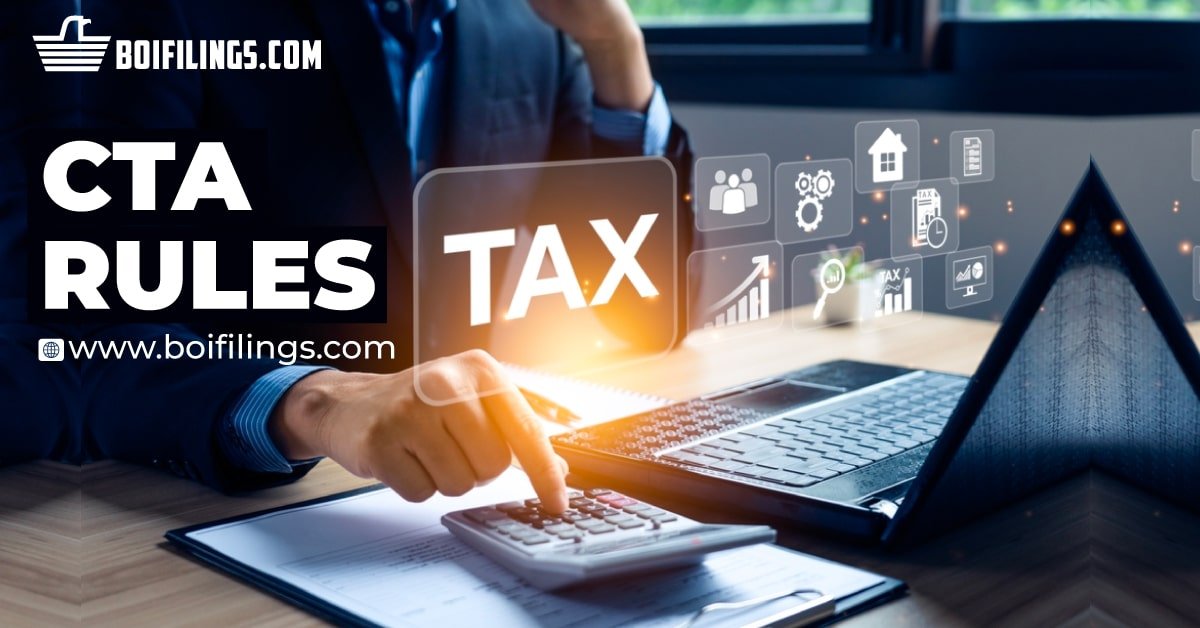In today's global business environment, the drive for transparency and accountability is more potent than ever. For U.S. business owners navigating domestic and international regulations, understanding the concept of Ultimate Beneficial Ownership (UBO) is crucial. This article delves deep into the basics of UBO and its implications for businesses operating in the United States.
UBO, Ultimate Beneficial Ownership

What is Ultimate Beneficial Ownership (UBO)?
At its core, the term "Ultimate Beneficial Ownership" refers to the individual(s) who ultimately own or control a legal entity. This can be through direct ownership, or indirectly through other non-transparent means. What does the Financial Action Task Force do? The key word here is 'ultimate' – it points towards the end person or persons who benefit from the entity, regardless of how many intermediaries are in between.
For instance, a company might be owned by another company, which in turn might be owned by a trust, and so on. The UBO would be the individual(s) at the end of this chain who holds the rights to benefits, profits, and control over the entity, either directly or indirectly.
Why is UBO Important?
- Compliance with regulations: In the aftermath of financial crises and global calls for more transparency, many countries, including the U.S., have put forth regulations mandating the disclosure of UBO information. want to know about Anti-money laundering regulations. This is especially relevant for businesses involved in international transactions or operating in financial sectors.
- Risk management: Identifying the UBOs can be a valuable part of due diligence processes. Know about the Corporate Transparency Act regulations. This can help in risk assessment by identifying potential conflicts of interest, ensuring that businesses aren't inadvertently dealing with sanctioned individuals or entities, or entering into transactions that could lead to reputational damage.
- Transparency and trust: In the business realm, clarity in ownership can lead to increased trust among stakeholders. Knowing who's behind a business can help in building stronger, transparent, and more trustworthy business relationships.
How is UBO Information Collected and Managed?
Collecting UBO information involves diving deep into the ownership structure of an entity until the actual individuals benefiting from it are identified. Know here about the Beneficial Ownership Secure System. This can sometimes be a straightforward process, but in cases involving multiple layers of ownership across different jurisdictions, it can be more complex.
Entities are usually required to self-disclose this information, particularly in jurisdictions with robust UBO regulations. want to know about Beneficial Ownership Information reporting. This self-disclosure often involves providing names, addresses, dates of birth, and details of the ownership or control of the identified UBOs.
Management of this information typically involves maintaining up-to-date records. Know about Beneficial Ownership Matter. As business structures or ownerships change, the UBO information should be revisited and updated accordingly. Moreover, stringent measures should be in place to protect this data, considering its sensitive nature. Learn more about UBO disclosure requirements.
What are the U.S. Specific Regulations on UBO?
In the U.S., the need for clear UBO disclosure has been reinforced with the passage of the Corporate Transparency Act (CTA) in 2021. Corporate Transparency Act Regulations. Under the CTA, certain U.S. businesses are required to report specific information about their beneficial owners to the Financial Crimes Enforcement Network (FinCEN). This includes:
- Identifying details of anyone who owns 25% or more of the entity.
- Details of anyone with significant control over the entity, regardless of their ownership stake.
- The Act primarily targets newly formed entities but also has provisions for existing entities to comply with specific timelines.
- Non-compliance can result in stringent penalties, both in terms of financial fines and potential prison terms. Therefore, understanding and adhering to these regulations is paramount for businesses.
Challenges Faced by Businesses Regarding UBO
While the intention behind UBO disclosure is clear and commendable, it does present challenges:
- Complexity in identification: Especially in cases with intricate ownership structures or where ownership is spread across multiple jurisdictions, determining the UBO can be challenging.
- Data privacy concerns: Handling sensitive personal data means businesses must be vigilant about data protection regulations and ensure they're not violating any rights.
- Resource-intensive: Especially for smaller businesses, the process can be resource-intensive, requiring dedicated personnel and tools.
The Broader Implications of UBO for Business Relationships
Transparency in business isn’t just about adhering to regulations; it often plays a pivotal role in the dynamics of business relationships.
- Enhanced Business Reputation: In a business ecosystem where stakeholders and partners are becoming more conscious about who they associate with, knowing and disclosing the UBO can serve as a mark of transparency and openness. Corporate Transparency Act Beneficial Ownership. This not only enhances the reputation of the entity but also fosters a sense of reliability among partners, investors, and customers.
- Facilitation of International Business: As globalization makes the world smaller and more businesses cross borders, UBO regulations can also act as facilitators. Beneficial Ownership Information 2024. When companies in different countries understand and adhere to global standards of transparency and disclosure, it can make international collaborations smoother. Partnerships and mergers become less risky, and due diligence processes are streamlined.
The Future of UBO Regulations
The landscape of UBO regulations is not static. Beneficial Ownership Rule. As the global call for transparency continues to grow, it's likely that UBO-related regulations will also evolve.
- Global Convergence: Different countries currently have varied UBO regulations, but there is a gradual move towards global standards. want to know How Does the NSBA Serve Small Businesses. This will aid businesses in having a unified framework, especially beneficial for multinational corporations.
- Technological Aids: With the advent of advanced data management tools, blockchain, and AI-driven analytics, the future might see more efficient and secure ways of collecting, storing, and managing UBO data. Know about BOI Filling. Such technologies can also make the process less resource-intensive, making it easier for smaller businesses to comply.
- Increased Scrutiny: As regulations evolve, there might be increased scrutiny and more stringent checks in place. Customer Due Diligence for Business Owners. Businesses should be prepared for more in-depth audits and verifications regarding UBO disclosures.
Recommendations for Business Owners
For U.S. business owners keen on staying ahead of the curve, a proactive approach towards UBO is recommended:
- Regularly Review Ownership Structures: Don’t wait for a regulatory nudge. Regularly review and update the UBO information, especially if there are changes in the business structure.
- Invest in Training: Ensure that key personnel, especially those in compliance and legal departments, are well-versed with UBO requirements and updates.
- Embrace Technology: Consider leveraging advanced data management tools that can ease the process of collecting and managing UBO information.
- Foster a Culture of Transparency: Beyond just compliance, make transparency a core value of your business. This not only aids in UBO adherence but can enhance stakeholder trust and business reputation.
Frequently Asked Questions about UBO: Ultimate Beneficial Ownership
- What constitutes a 'beneficial owner' under UBO?
The term "beneficial owner" refers to the person who ultimately holds the reins or wields the power over a legal entity. Do you want to know How Does the NSBA Serve Small Businesses? This doesn’t necessarily mean the person named on a certificate of ownership. Instead, it refers to the person who enjoys the benefits of ownership, whether those benefits are through direct ownership or a control position. - How is the 25% ownership figure determined in U.S. regulations?
Under the Corporate Transparency Act (CTA), an individual who owns 25% or more of an entity's equity interests would be considered a beneficial owner. How effective is the Financial Action Task Force? This percentage is a threshold set by regulations to capture significant ownership stakes, though it's worth noting that the definition also includes those with significant control, regardless of ownership percentage. - What happens if a company doesn’t have any ultimate beneficial owner as per the 25% criteria?
Even if no individual meets the 25% ownership threshold, entities would still need to disclose information about persons with significant control over the company's operations and decision-making. Classifications of Personally Identifiable Information. It's essential to focus on both ownership and control aspects when determining UBOs. - Are all businesses in the U.S. required to disclose UBO information?
While the CTA is broad in its reach, certain exemptions apply. Generally, larger publicly traded companies, banks, credit unions, and certain entities operating in specific industries might be exempt. What are Ultimate Beneficial Owners? However, it's essential for businesses to consult legal guidance to determine their specific obligations. - How frequently should UBO information be updated?
While regulations like the CTA might stipulate specific timelines, it's good practice for businesses to review and update UBO information annually or whenever there are significant changes in ownership or control structures. - Are foreign entities operating in the U.S. subject to UBO regulations?
Foreign entities seeking to operate within the United States may find themselves obligated to adhere to UBO (Ultimate Beneficial Owner) disclosure regulations. What is Considered a Beneficial Owner of an LLC? The specifics would depend on the nature of their operations and their legal structure in the U.S. - How can businesses ensure data privacy while disclosing UBO information?While disclosing UBO information, businesses must adhere to data protection and privacy regulations. What is Considered a Beneficial Owner of an LLC? By harnessing the power of encrypted databases, restricting access to UBO information, and diligently following data protection laws, we can create a harmonious equilibrium between transparency and safeguarding privacy.
- Can there be more than one UBO for a single entity?
Yes, there can be multiple UBOs for a single entity. What are Beneficial Owners of a Company? If several individuals meet the ownership or control criteria, all of them would be considered UBOs and must be disclosed accordingly.
Conclusion
The drive towards transparency in the global business ecosystem is unceasing. Ultimate Beneficial Ownership is a significant part of this transparency drive. Know AML's definition. For U.S. businesses, understanding, and adhering to UBO requirements is not just about compliance; it's about fostering trust, ensuring robust risk management, and promoting a transparent business environment that benefits all stakeholders. Financial Action Task Force Overview. It's a journey of navigating challenges but one that promises a transparent and accountable future for the business landscape.
File a Required BOI
In the evolving landscape of business regulations, staying compliant is more than a mere legal formality; it's now a cornerstone of ethical and responsible entrepreneurship to file a required BOI.
Read More
CTA Rules
Let's go over CTA code of ethics rules that go into effect on January 1, 2024 (Corporate Transparency Act) for US businesses via BOI filing (Beneficial Ownership Information) with FinCEN: Learn here CTAs and NFA regulations.
Read MoreEXPLORE RELATED TOPICS
BOI REPORT WHAT IS A BOI BOI LLC Ruling WHAT IS THE BENEFICIAL OWNERSHIP REPORT BENEFICIAL OWNER 2024